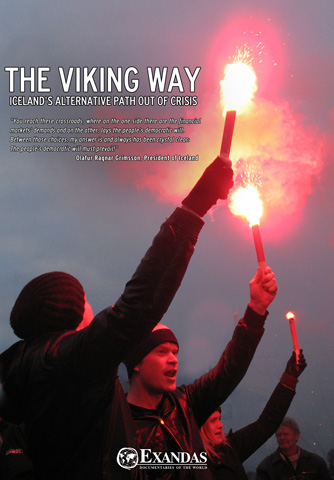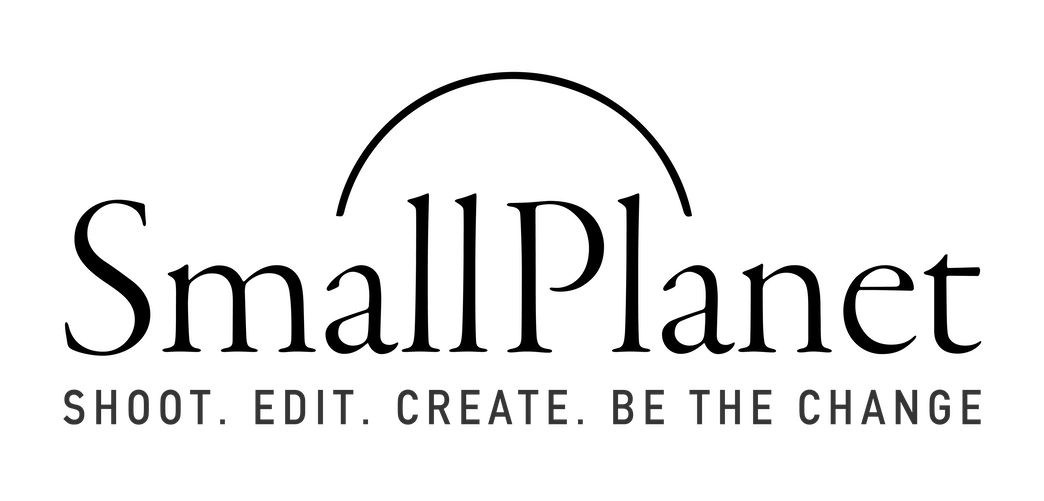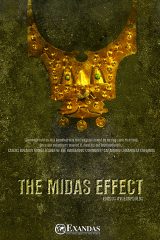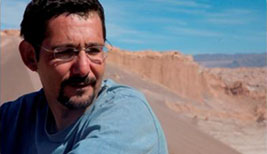
The Viking Way
Dir: Yorgos AvgeropoulosIn 2008, Iceland was confronted with an unprecedented economic disaster. The country’s three banks collapsed, dragging with them to ruin the country’s whole social, economic and political life.
Four years later, in 2012, Iceland has begun to show signs of recovery. Unemployment rates are declining and growth rates have reached approximately a 2,5%. However, in order to reach this positive outcome, some quite unorthodox methods were implemented. The measures taken were completely different from what the E.U. and the IMF enforce on member states of the Eurozone that suffer from the effects of the recession. Many times, these handlings brought Iceland up against the International Community and the markets. Nowadays, even the IMF admits that the different methods used in handling the crisis in Iceland have come into fruition. How did the Vikings’ descendants achieve these results?
Watch the Film Now!
Choose the language you prefer and stream the film in Full HD from any digital device. Enjoy your private screening!
Buy the DVD
Public Screening
Are you interested in organizing a public screening of our film? Send us an email with your inquiry and we will be glad to assist you!
Educational / Library Use
Are you interested in enriching the library of your institution with our film? Contact us and let's create together an informed public!
- DURATION: 51min
- AVAILABLE IN THE FOLLOWING LANGUAGES: English | Spanish | Greek
- AVAILABLE VERSIONS: English (51min) | Spanish (51min) | Greek (51min)
- YEAR OF PRODUCTION: 2011
- Directed by: Yorgos Avgeropoulos
- Written by: Yorgos Avgeropoulos, Achilleas Kouremenos
- Produced by: Achilleas Kouremenos
- Director of Photography: Alexis Barzos
- Production Manager: Anastasia Skoubri
- Research Coordinator: Georgia Anagnou
- Editing: Yiannis Biliris, Anna Prokou
- Original Music: Yiannis Paxevanis
PRODUCTION NOTES
Iceland’s Prime Minister and president of the Independence Party, Geir Haarde, declared, on October 6th 2008, during his proclamation to the Icelandic people: “God bless Iceland!” The free market had ceased giving its blessings and the Neo-liberal economic miracle of the island country had turned into an Icelandic fairytale. With the country’s three banks declaring bankruptcy and, as if the ridge on which Iceland stands on comes roaring to life, Iceland’s economy collapsed. How is it, however, possible a country “named” in 2007 by the UN “as the best to live in”, to be on the brink of disaster a year afterwards?
Iceland is a particularly beautiful, volcanic island of the North Atlantic Ocean, with a population of just 320 thousands. It literally lies at the end of the world, situated directly over the Mid-Atlantic Ridge, where the Eurasian and North American Plates meet. Because of this, it is rich in geothermal springs and the abundance in renewable energy resources covers almost completely the island’s energy needs. Traditionally, Iceland’s inhabitants were fishermen, farmers and cattle breeders. But this lasted only till the mid ’90s.
CHASING THE “ICELANDIC DREAM”
“In the early 1990s, a new Neoliberal party gained power, bringing with it a new way of political thinking”, says the professor of political sciences, Eirikur Bergmann. The recipe was well known: Privatizations, tax rate cuts for enterprises, complete market liberalization, weak reflexes of the audit institutions and an abundance in plastic money and credits for the lower social classes. Mr. Bergmann points out that: “Here, the whole political system supported this type of development. The banks expanded their activity abroad, mostly in the United Kingdom and the Netherlands. In the end, the country’s banking system became 10 times larger than the nation’s collective economy. Which means the banks accumulated 10 times more wealth than the whole country’s wealth.”
The tone was set by the ambitious golden boys and the young bankers, who competed with each other for the highest profits, while the rest of society followed their lead. Everyone was pleased and only few were absent from this frantic money party. The simple workers started lavishly taking out personal loans to buy luxurious homes and cars and the dream of “the big life” had taken over every aspect of their daily life. Singer Helen Kristinsdottir almost apologetically confesses that: “I believe people went beyond their means by buying all sorts of things. I did it as well, you know. I am not innocent. I did all crazy things, because I thought it was the right time to do them.”
THE MARKETS’ UNPLEASANT TRUTH
But this prosperity did not last long. The declared bankruptcy of Lehman Brothers in 2008 affected directly the Icelandic banks. As mistrust prevailed, the Interbank Market froze. Banks tried to minimize their activities and accumulate cash. The markets demanded back the money lent, as did the foreign investors from the Netherlands and the United Kingdom. The Icelandic banks were unable to deliver and Iceland’s Central Bank did not have the resources to lend them such amounts, as they had over-expanded. Their crash was inevitable.
Minister of Economic Affairs Steingrimur J. Sigfusson describes: “It was a financial bubble. And in October 2008 all this came to an abrupt and dramatic end. The three largest banks with extensive international transactions collapsed and this was a severe shock for the whole Icelandic economy. The financial sector practically vanished. There were great asset price deflations and a sudden currency depreciation, a fact which caused significant problems for enterprises and real estate sales. These events were quite dramatic”.
TEAR GAS FOR THE FIRST TIME
For the first time in the land’s history after World War II, massive protests broke out and in Reykjavik demonstrators came up against the police’s tear gas. Thousands of people from all age groups poured out on the streets, causing a series of events that became known as the “Kitchenware Revolution”. “They were just people, who couldn’t take it anymore. They felt morally obliged to act. People, who may, in the past, not have done anything like this before”, says Birgitta Jonsdottir, member of parliament for the Citizens’ Movement party.
The demonstrations did not just leave behind the echoes of blasting noise, but achieved the government’s deposition and the election of a new one, a coalition between the center-left Social Democratic Alliance and the Left-Green Movement. “After we overthrew the previous government with a bloodless revolution that became internationally known, some were given the chance to form a new government”, says demonstrator Hjörtur Howser.
RECKONING WITHOUT YOUR HOST
The new government’s first step was to negotiate with the United Kingdom’s and the Netherlands’ respective governments, which were pressuring for their citizens’ reimbursements. They reached an agreement, which was later on voted by the Icelandic parliament and stated that the people should pay for the damage caused by private companies, namely the banks. This decision was redirected for validation to the country’s President, who under society’s pressure, refused to sign and called for a referendum.
“Ultimately, it was a question, whether Iceland’s everyday people, farmers, fishermen, nurses, doctors, young and old, should be liable for the failure of a private bank”, explains Iceland’s President, Olafur Ragnar Grimsson. “To put it differently: We have a system, in which banks’ profits lead to super profits for their stakeholders and to bonuses for the bankers, but the banks’ losses burden society? Which means we privatize the profits and socialize the losses?”, wonders Mr. Grimsson.
The President’s decision made the international financial community livid and was criticized by enemies and friends alike as being populistic and leading to a dead end. Members of the Euro zone threatened that Iceland will become “Cuba of the North”. It will be isolated and become a pariah state. However, Mr Grimsson’s decision was irreversible. In March 2010, the Icelandic nation with an overwhelming 93% declined through the referendum to shoulder the responsibility for any of the banks’ debts.
“You reach these crossroads, where on the one side there are the financial markets’ demands and on the other, lays the people’s democratic will. Between these choices, my answer is and always has been clear: The people’s democratic will must prevail!”, remarks Iceland’s President.
The fraught, because of the resounding results of the referendum, English and Dutch people called upon the Icelandic government to discuss the matter again. They offered better provisions than the last time. However, the President showed them for the second time the way to the ballot box. The result was once again “No”.
“Which is Europe’s greatest contribution to civilization?”, Mr. Grimsson wonders. “It is not the economy of the markets. Democracy is Europe’s greatest contribution to the world. There are countries today with strong economies, but with little democracy.”
THE CITIZENS REVISE THE CONSTITUTION
The Icelandic people’s firm belief in democracy has its roots in 930 A.D. It was then, when one of the oldest parliaments of the world was created. Inhabitants from all over the island, after traveling on their horses for days on end, reached the Thingvellir planes, where under the open skies, decided for the common good. The National Assembly was the only legislative institution, as there was no executive government or a king.
So, even nowadays, Iceland’s citizens took it upon themselves to legislate once again. After a special bill was proposed in Parliament, it was decided that common people could participate in the revision of Iceland’s constitution.
Astros Gunnlaugsdottir, a student and member of the Constitutional Council says about her experience: “We read the Sections of the Constitution one by one, in order to see how they were until now and to establish whether they needed to be rewritten. Afterwards, we created our own Sections, which were published online, so the public could comment on. We then, read those comments and examined whether a change was needed, while taking the public’s view into consideration.” And she concludes: “For me this is a step towards the future. This is a part of a direct democracy, which allows its citizens to participate in the daily political life. And the Internet can play this role and act as intermediary.”
LET THE CULPRITS GO TO JAIL
At the same time, another demand of the citizens is being granted. A special court searches for the criminally responsible for the crisis of 2008.
Former Prime Minister, Geir Haarde, becomes the first world leader to face criminal charges in his handlings of the global financial crisis. Emotionally moved he states: “My conscience is clear. I did not break the law. I never did such a thing and I do not believe the decisions made should lead a Prime Minister to prison. On the contrary! It is disgraceful of my political adversaries to want to destroy me and my party by using these methods. Here, politics have turned into a criminal case and justice has turned a blind eye to these events”, he concludes.
Mr. Haarde is facing the maximum penalty, which in Iceland ads up to two years of imprisonment. And he is not the only one… Three former directors of the central bank, ministers and executives of the three private banks are called upon to answer for their actions. The Permanent Secretary of the Ministry of Finance has already received his sentence. The prosecutor has issued international arrest warrants, as many of the banks’ golden boys have escaped abroad, withdrawing enormous amounts from their bank accounts one day before the crisis broke out. Three of them have been arrested.
Nobody, not even the defendants, has ever questioned the credibility of the special enquiry committee, which within 15 months since its assembly, has composed a report of 2.400 pages. The “black report”, as it is called in Iceland, was recited for six days non stop, by 45 actors at the town’s municipal theatre. This was a moment of catharsis for the Icelanders.
REVIVAL FROM THE ASHES
The crisis left deep scars on this island country. The Icelandic króna was abruptly devaluated by an 80%. Thousands of people became unemployed and the banks started confiscating homes and cars, as citizens were unable to pay back their loans. Many turned to People’s Supermarkets for their essentials – a fact quite unusual for a Scandinavian state – especially for Iceland, whose resources can secure a very good living standard for its citizens. Asgerdur Flosadottir, director of such a facility says: “Now, approximately 700 families come here, while before the crisis there were only 300 to 350. These groups, which become larger and larger, week in week out, consist of the unemployed.”
Iceland’s deeply wounded economy was unable to recover without some help. The Scandinavian states loaned the country 2,5 billion dollars, while the IMF, on its first appearance in Europe after 35 years, loaned Iceland 2,1 billion dollars. The Minister of Finance, Steingrimur Sigfusson, took over the negotiations with the IMP, although up to that point he was IMF’s greatest adversary. Since the first instant, he made his position clear: “You must comprehend that you come to a Scandinavian, social welfare state. An open, democratic, welfare state. This is a new experience for you. And you must understand this!”, he told them. Moreover, he explains how IMF’s representatives reacted to his statement: “In the beginning, they were negative, but when they realized how serious we were and that we had firm arguments for a specific course of action, they accepted this fact and allowed us to plan the measures to be taken according to our country’s needs.”
The IMF Resident Representative in Iceland, Franek Rozwadowski, has been amazed by the outcome of events: “It is probably true that the lower and middle classes are the ones mostly affected by the crisis. It is unfortunate, but this is what seems to be happening. One of the most notable measures of this programme, designed and implemented by the authorities, is that they tried to protect the population’s poorer parts, namely the middle classes and the impoverished.” He concludes that: “I think this was an important and great achievement on the government’s part. During the period after the crisis, the imbalance in income distribution, instead of becoming bigger, has, in fact, diminished”.
The country is on the right path, while trying to remain a welfare state and at the same time imposing heavy taxation on the wealthier social classes. As Mr. Sigfusson points out: “Now, that some time has passed since the beginning of the crisis, we can say that we are pleased with the outcome. Things went well for Iceland, because it managed to steer out of danger and there are no more talks of bankruptcy or anything similar. The restitution moves on and the expected economic growth for this year is at about 2,5% – 3%. The unemployment rate is constantly declining and most indicators show improvement. But, we still have a long way ahead of us”.
Iceland set, without a doubt, a different example in managing the financial crisis, caused by the crash of its banks. The state tried to function financially, politically, judicially and culturally not based on the markets’ demands, which brought it to the brink of disaster, but having its citizens’ best interests at heart. But even so, the problems caused by this crisis still remain, leading up to the question: Where lies the core of the problem that has lead states, from Argentina to Guatemala, Tunisia to Kenya and Iceland to Greece, to complete and utter poverty?







